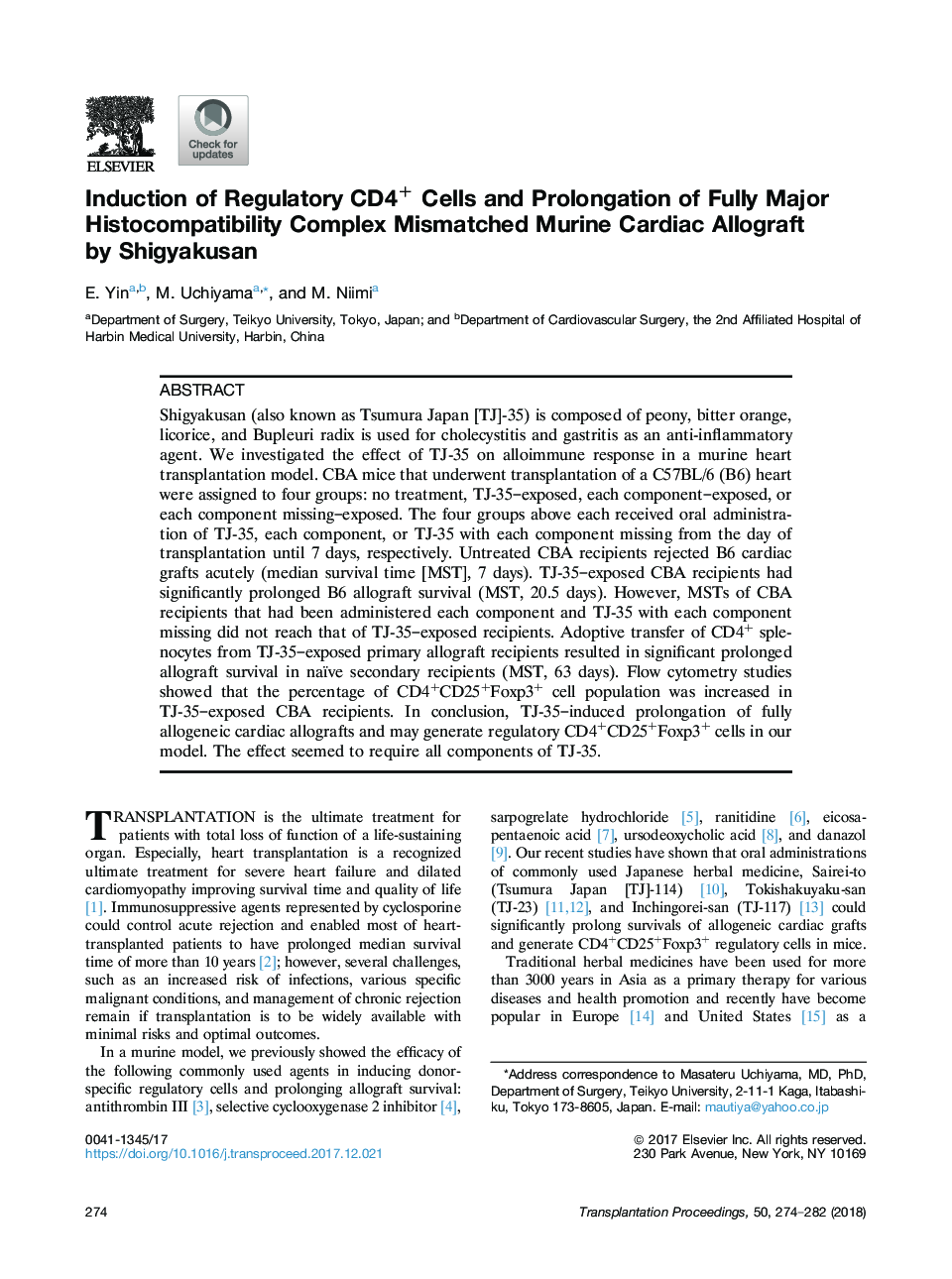| Article ID | Journal | Published Year | Pages | File Type |
|---|---|---|---|---|
| 8827446 | Transplantation Proceedings | 2018 | 9 Pages |
Abstract
Shigyakusan (also known as Tsumura Japan [TJ]-35) is composed of peony, bitter orange, licorice, and Bupleuri radix is used for cholecystitis and gastritis as an anti-inflammatory agent. We investigated the effect of TJ-35 on alloimmune response in a murine heart transplantation model. CBA mice that underwent transplantation of a C57BL/6 (B6) heart were assigned to four groups: no treatment, TJ-35-exposed, each component-exposed, or each component missing-exposed. The four groups above each received oral administration of TJ-35, each component, or TJ-35 with each component missing from the day of transplantation until 7 days, respectively. Untreated CBA recipients rejected B6 cardiac grafts acutely (median survival time [MST], 7 days). TJ-35-exposed CBA recipients had significantly prolonged B6 allograft survival (MST, 20.5 days). However, MSTs of CBA recipients that had been administered each component and TJ-35 with each component missing did not reach that of TJ-35-exposed recipients. Adoptive transfer of CD4+ splenocytes from TJ-35-exposed primary allograft recipients resulted in significant prolonged allograft survival in naïve secondary recipients (MST, 63 days). Flow cytometry studies showed that the percentage of CD4+CD25+Foxp3+ cell population was increased in TJ-35-exposed CBA recipients. In conclusion, TJ-35-induced prolongation of fully allogeneic cardiac allografts and may generate regulatory CD4+CD25+Foxp3+ cells in our model. The effect seemed to require all components of TJ-35.
Related Topics
Health Sciences
Medicine and Dentistry
Surgery
Authors
E. Yin, M. Uchiyama, M. Niimi,
